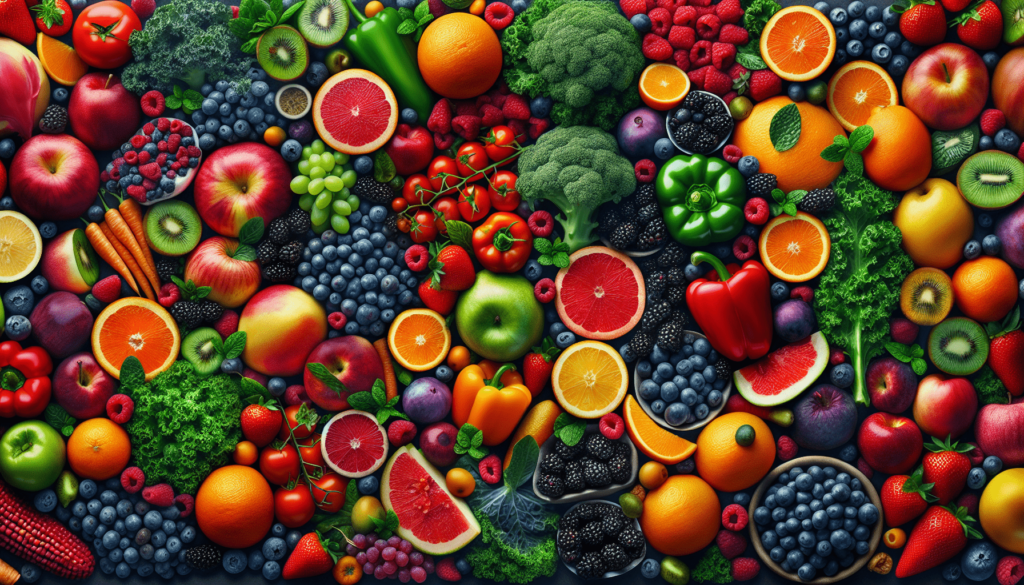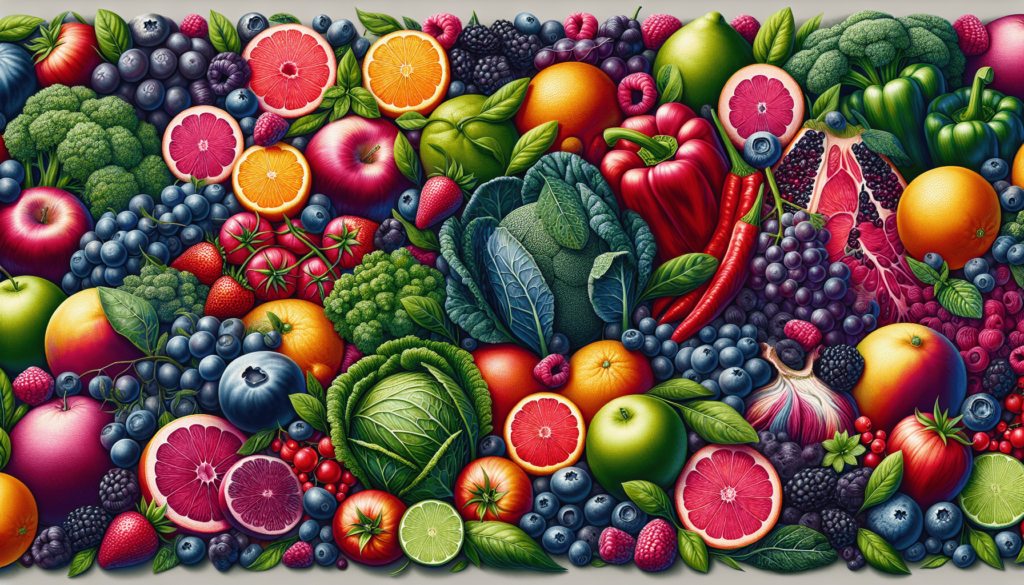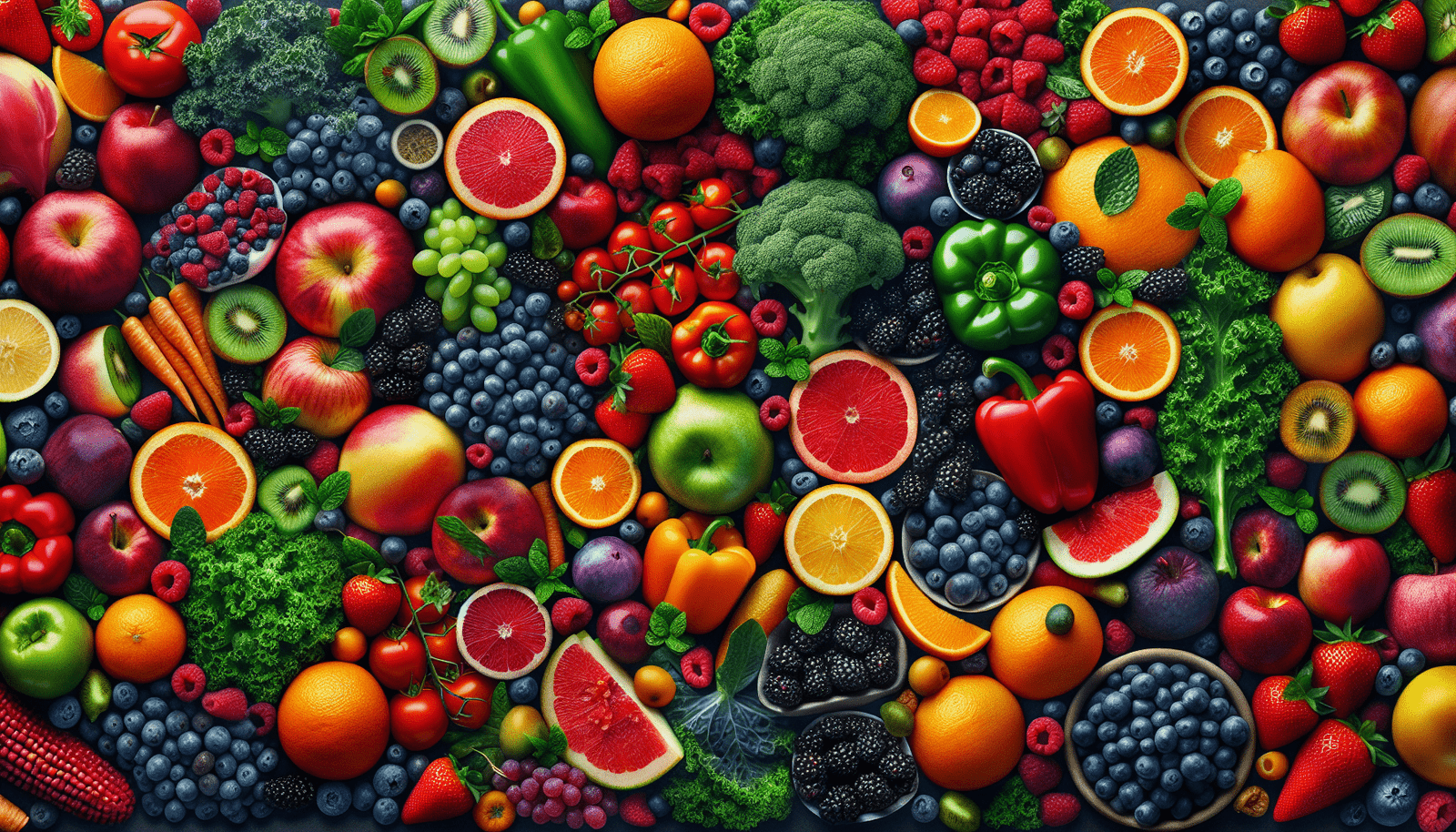Have you ever wondered if there was a secret ingredient that could make your meals not only delicious but also healthier? Look no further than flavonoids – the powerful antioxidants found in a variety of colorful fruits and vegetables. Studies have shown that including flavonoid-rich foods in your diet can help reduce inflammation, improve heart health, and even lower the risk of certain chronic diseases. So next time you’re at the grocery store, be sure to fill your cart with berries, dark chocolate, and leafy greens to reap the benefits of these amazing compounds. Your body will thank you! Have you ever wondered what makes some fruits and vegetables so colorful? And have you ever heard of flavonoids? Let me introduce you to flavonoids, the secret ingredients that not only give color to your favorite foods but also offer a wide range of health benefits. In this article, we will delve into the world of flavonoids and explore how they can contribute to healthier eating habits. So sit back, relax, and let’s uncover the mystery behind these powerful compounds together.

What Are Flavonoids?
Flavonoids are a diverse group of plant compounds known for their antioxidant properties. They are responsible for the vibrant colors of many fruits, vegetables, and flowers. Flavonoids are classified into several subgroups, including flavonols, flavones, flavanones, flavan-3-ols, anthocyanins, and isoflavones. Each subgroup has its unique chemical structure and health benefits.
Flavonoids are found in a wide variety of plant-based foods, including fruits, vegetables, legumes, nuts, seeds, herbs, spices, tea, and wine. They are known for their anti-inflammatory, anti-cancer, anti-microbial, and heart-protective effects. Adding flavonoid-rich foods to your diet can help boost your overall health and well-being.
Why Are Flavonoids Important?
Flavonoids play a crucial role in maintaining good health due to their antioxidant and anti-inflammatory properties. Antioxidants help protect your cells from damage caused by free radicals, which are unstable molecules that can harm your body’s cells. By neutralizing free radicals, flavonoids can help reduce inflammation, lower the risk of chronic diseases, and slow down the aging process.
Research has shown that diets rich in flavonoids are associated with a lower risk of heart disease, stroke, cancer, and other chronic conditions. Flavonoids can also support brain health, improve digestion, boost immune function, and promote skin health.
Different Types of Flavonoids
As mentioned earlier, flavonoids can be categorized into several subgroups based on their chemical structure and health benefits. Let’s take a closer look at some of the most common types of flavonoids and their sources:
| Flavonoid Subgroup | Food Sources |
|---|---|
| Flavonols | Onions, kale, broccoli, apples |
| Flavones | Parsley, celery, chamomile tea |
| Flavanones | Citrus fruits, berries, tomatoes |
| Flavan-3-ols | Green tea, cocoa, red wine |
| Anthocyanins | Berries, grapes, purple cabbage |
| Isoflavones | Soybeans, chickpeas, lentils |
Each subgroup of flavonoids has its unique health benefits. For example, flavonols are known for their heart-protective and anti-inflammatory effects, while anthocyanins are praised for their anti-cancer and anti-aging properties.
How to Incorporate Flavonoids Into Your Diet
Now that you know the different types of flavonoids and their food sources, you may be wondering how to incorporate them into your daily meals. Here are some simple tips to help you add more flavonoid-rich foods to your diet:
-
Eat a Rainbow of Fruits and Vegetables: Make sure to include a variety of colorful fruits and vegetables in your meals. Aim to have at least five different colors on your plate to maximize the intake of various flavonoids.
-
Drink Herbal Teas: Enjoy a cup of herbal tea made from chamomile, peppermint, or hibiscus for a soothing and antioxidant-rich beverage.
-
Snack on Berries and Nuts: Grab a handful of berries, nuts, or seeds for a healthy and satisfying snack that is packed with flavonoids.
-
Cook with Herbs and Spices: Add herbs and spices like parsley, thyme, turmeric, and cinnamon to your dishes for extra flavor and health benefits.
-
Indulge in Dark Chocolate and Red Wine: Treat yourself to a piece of dark chocolate or a glass of red wine as a delicious way to enjoy the benefits of flavonoids.
Health Benefits of Flavonoids
Flavonoids offer a wide range of health benefits, thanks to their antioxidant, anti-inflammatory, and other bioactive properties. Let’s explore some of the key health benefits associated with the consumption of flavonoid-rich foods:
Heart Health
Numerous studies have shown that diets rich in flavonoids are beneficial for heart health. Flavonoids can help lower blood pressure, reduce cholesterol levels, and improve blood flow, which can reduce the risk of heart disease, stroke, and other cardiovascular conditions.
Anti-Cancer Effects
Certain flavonoids, such as anthocyanins and flavones, have been studied for their potential anti-cancer effects. These compounds can inhibit the growth of cancer cells, induce apoptosis (cell death), and reduce the spread of tumors, making them valuable in cancer prevention and treatment.
Brain Function
Flavonoids have been found to have positive effects on brain health and cognitive function. They can improve memory, focus, and overall brain function by protecting brain cells from oxidative stress, reducing inflammation, and enhancing blood flow to the brain.
Immune Support
Flavonoids can help strengthen the immune system by enhancing the production of white blood cells, antibodies, and other immune-boosting factors. This can help your body fight off infections, viruses, and other pathogens more effectively.
Skin Health
Some flavonoids, such as flavonols and flavones, have been shown to have beneficial effects on skin health. They can protect the skin from UV damage, reduce inflammation, promote collagen production, and improve overall skin tone and texture.
Conclusion
In conclusion, flavonoids are a diverse group of plant compounds that offer a myriad of health benefits. By including flavonoid-rich foods in your diet, you can improve your overall health and well-being, protect your cells from damage, reduce inflammation, and lower the risk of chronic diseases. So next time you’re at the grocery store or preparing a meal, remember to incorporate colorful fruits, vegetables, herbs, spices, tea, and wine to benefit from the power of flavonoids. Cheers to healthier eating and a happier, more vibrant you!


